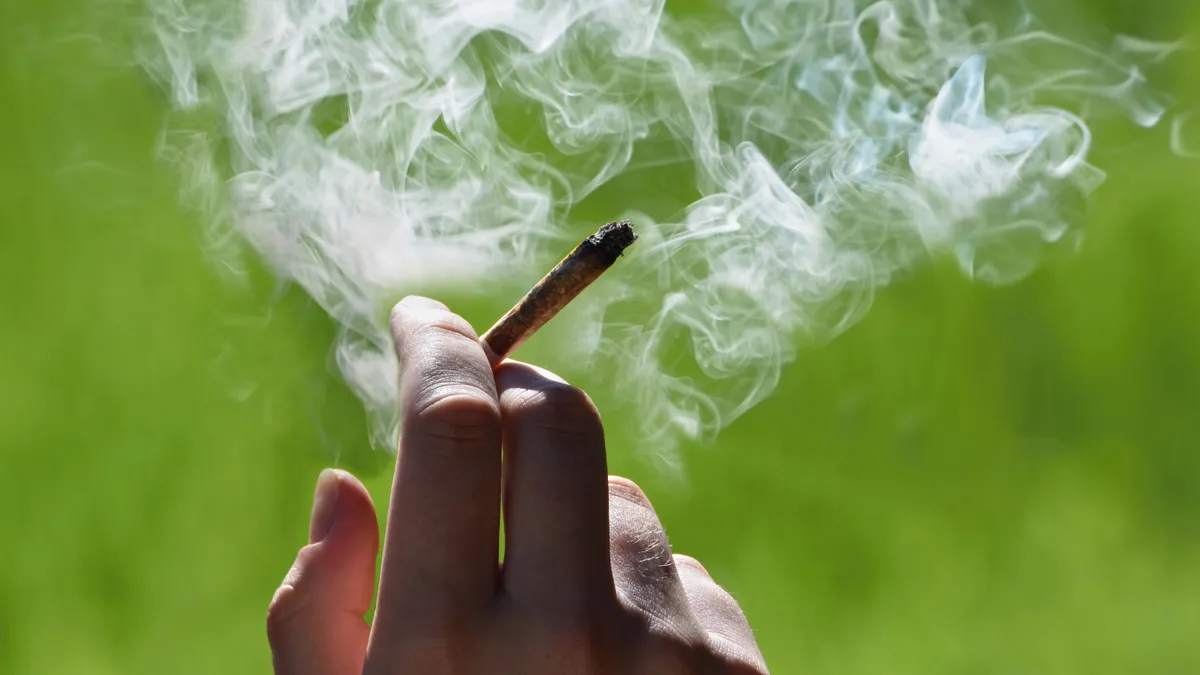Dive Brief:
- An NCAA panel is calling for the association to remove cannabis from its list of banned substances for college athletes, recommending instead that drug testing exclusively apply to performance enhancers.
- The Committee on Competitive Safeguards and Medical Aspects of Sports is also suggesting the NCAA discontinue cannabis testing at championship events while it considers policy changes, the association said Friday.
- Governing groups for Divisions I, II and III would need to pass rule changes for cannabis to be dropped as a banned substance, the NCAA said. The association expects to take final action this fall.
Dive Insight:
The public has grown more accepting of medical and recreational marijuana use — but it can still affect athletes’ eligibility to play at the college and professional level.
Notably, in 2021, U.S. track and field star Sha'Carri Richardson was banned from competing in the Tokyo Olympics after testing positive for marijuana, despite the fact that it’s not performance enhancing.
The NCAA has also been slow to adapt on this front, though last year it raised the threshold of THC that would need to be present in a drug test to trigger a positive result. THC is the psychoactive component of cannabis that creates the sensation of being high.
At that time, the NCAA also began reworking its penalties for marijuana use. College athletes wouldn’t lose eligibility, even if they had three positive drug tests for marijuana. But after the first positive test, students need to participate in a drug management and education plan. If they failed to follow it, then they could be excluded from some regular season matchups.
“Marijuana is not considered a performance-enhancing substance, but it remains important for member schools to engage student-athletes regarding substance use prevention and provide management and support when appropriate,” Dr. Brian Hainline, the NCAA’s chief medical officer, said in 2022.
The NCAA is now moving to nix its marijuana ban in part because association leaders recognize “that a harm reduction approach to cannabis is best implemented at the school level,” it said Friday.
The committee that made the recommendation is also backing development of an NCAA cannabis “communication and education campaign.”
The NCAA oversees college athletics at about 1,100 institutions in the U.S., including Puerto Rico, and Canada. It began drug testing at championship events in 1986 and expanded to year-round testing in 1990.









